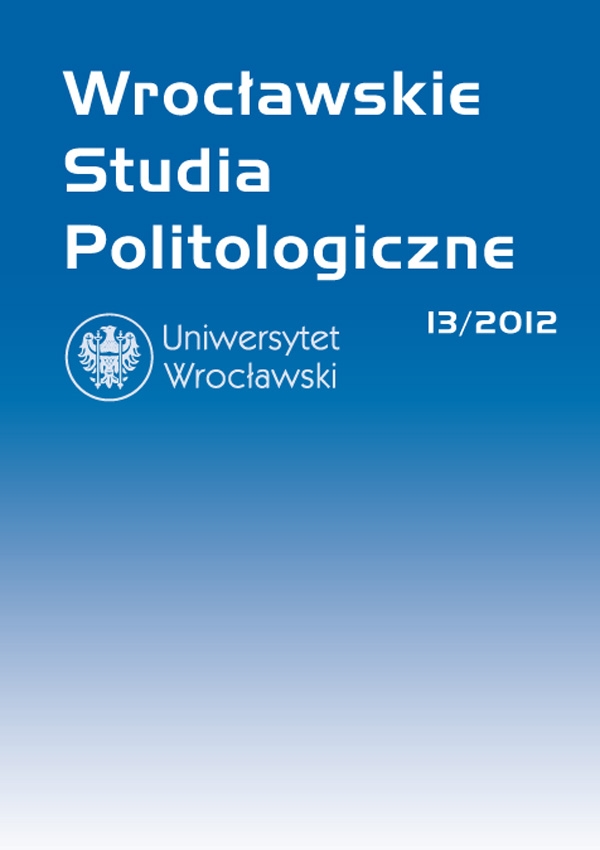

Artykuły

Conceptualization of the West in the theory of international relations
The history of the Western thought and the poignancy of the European core in the 19th and the beginning of the 20th century, became a ground for considering the evolution of international relations with reference to the intellectual and historical evolution of the West, which was traditionally being associated with Western Europe. The strength of the West, in terms of political and economic potential, facilitated the widening of ideas created in its range, institutions and structures. However, along with the collapse of the Soviet bloc, doubts provoked by the growing threat of terrorism, rising poverty and the emergence of environmental problems worldwide, the Western vision of world has been blurred. The emergence of a new international order, in which Brazil, Russia, India and China BRIC are already playing the greater role, revealed also the weaknesses of individual schools of thought about international relations, from which none was able to produce conceptual tools allowing for the analysis of the new international order. The author of this article expresses a view that some hope for the change of this state of affairs may be found in the writings of representatives of the “English school,” whose works concern a certain revolution directed against the West, but occurring in some non-Western states.